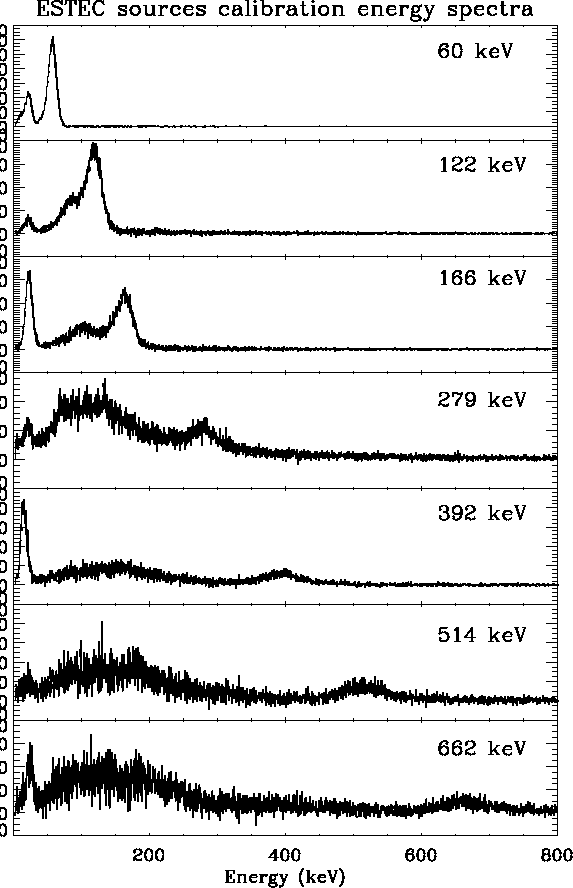 |
Some results of the radioactive sources calibrations described in section 2.4.3
and performed in order to estimate spurious contributions to GRBM detectors
measured spectra by the calibration environment and/or sources set-up are
shown in figures 2.28 and 2.29.
In Fig. 2.28 we show the spectra of all the calibration sources taken
at ESTEC with the NaI detector in place of the satellite. Two remarkable
results are clearly visible in comparing these spectra to the GRBM spectra (Fig. 2.22, Fig. 2.23). The first is that the low-energy blends photo-peaks are clearly seen in the NaI spectra, showing the absorbing effect
of the materials in front of LS1 and LS3. The second is that the backscattering
component superimposed to the Compton continuum at medium to high energies
is of the same amplitude in the two sets of spectra, indicating that most
of the backscattered photons come from the walls and floor of the room and not from satellite structures.
In addition, the spectra of the high energy sources taken at ENEA laboratories
with a Germanium detector (in Fig. 2.29 we show the 662 keV
source spectrum) with much higher energy resolution (the photo-peak is very close
to a delta function), show a very little backscattering component. Measurements performed with and without the sources polystyrene container, indicate that this low contribution is not due to the sources set-up, and thus it probably comes from backscattered photons from the ENEA calibration room.